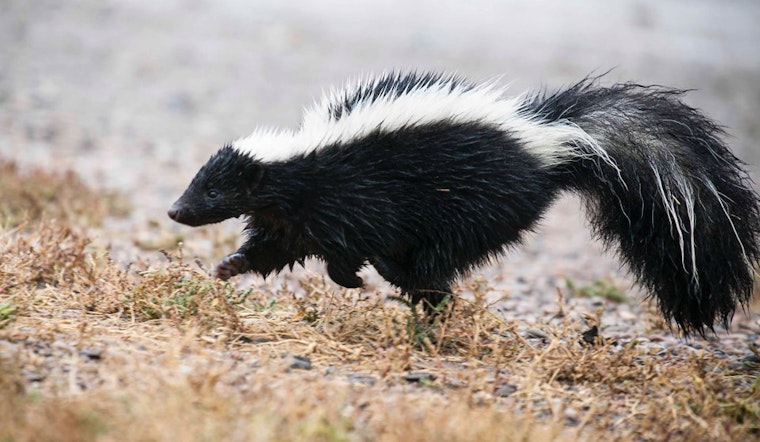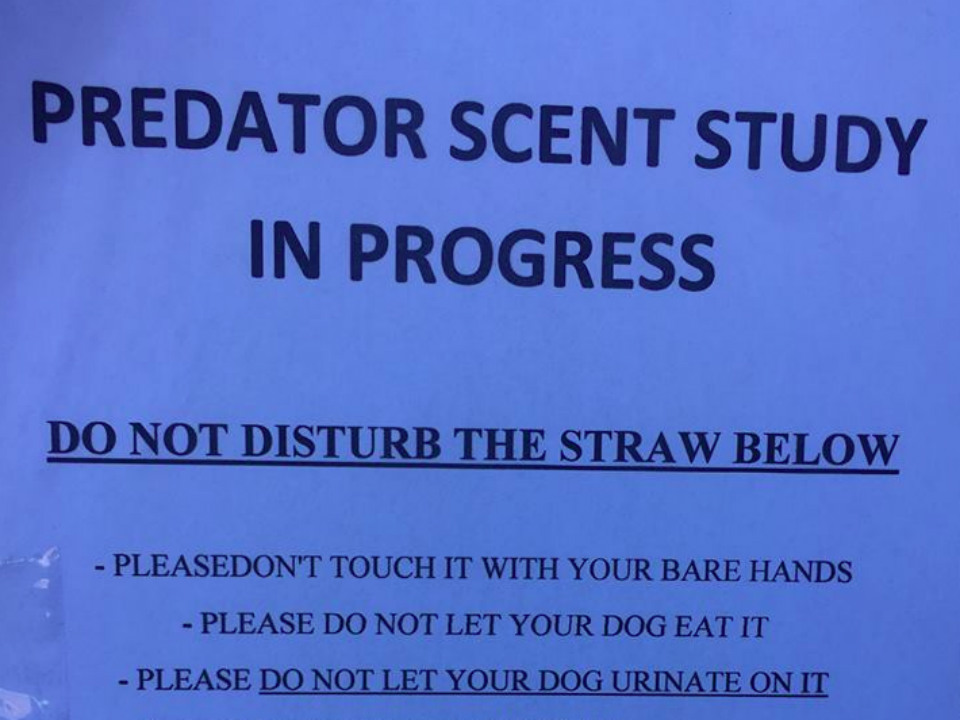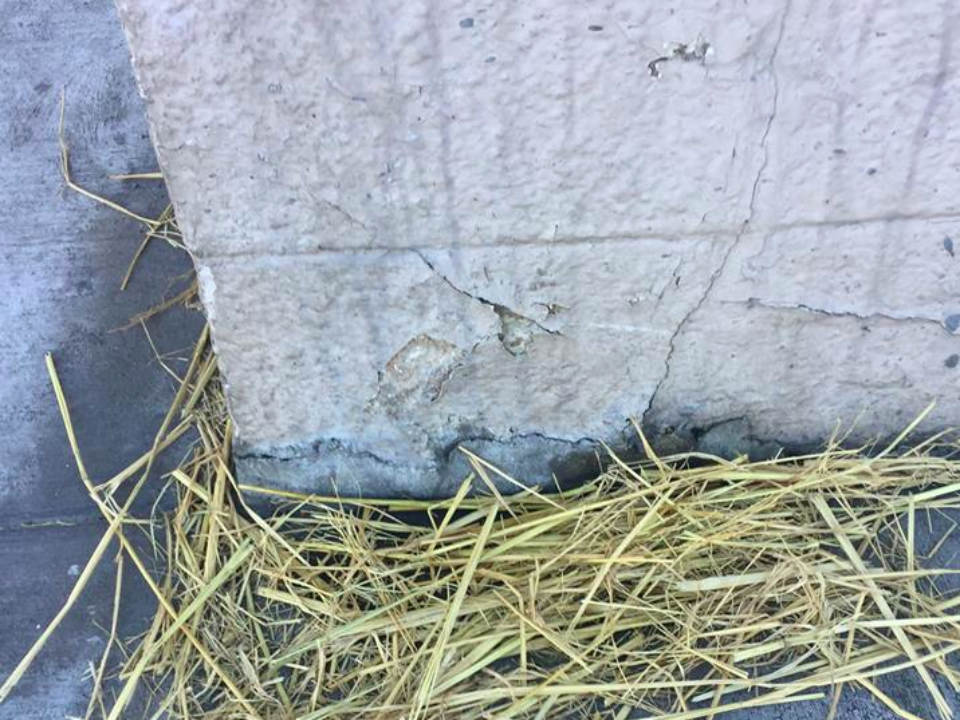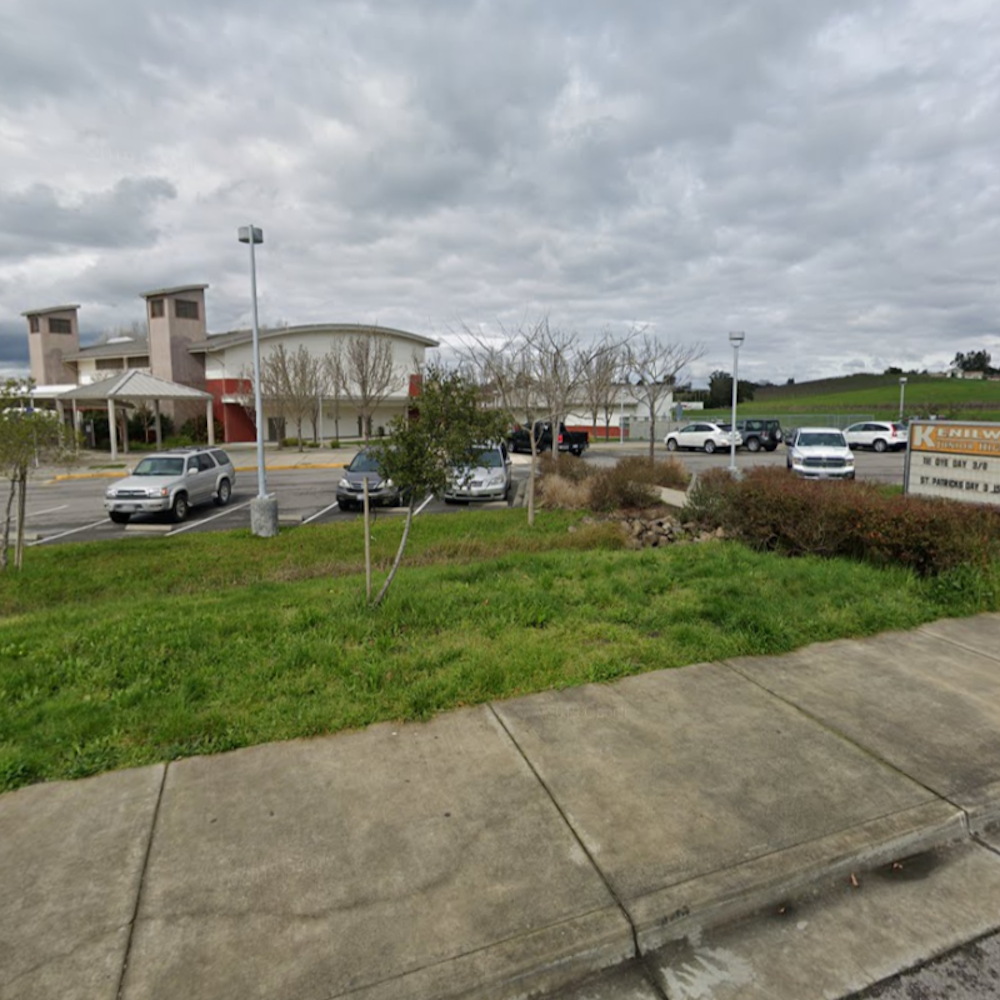
If you live in San Francisco, you're no stranger to the host of wild creatures that wander in and out of city life, whether it's raccoons, coyotes, great blue herons, or more raccoons. And if you live around Cole Valley, chances are you've seen signs of a wildlife experiment in progress at a home at Willard and Frederick.
Visible signs of the informal "predator scent study"—a brief notice posted on the wall of the building and some straw strewn around the foundation late last week—piqued our interest, so we decided to find out more.

It turns out, the study is being conducted by Phil Derdevanis, a San Francisco native whose tenant noticed signs of skunks living in the garage.
It's currently mating season for skunks, Derdevanis said, which means they're spraying even more than usual. And a trap-and-relocate approach was out of the question because the city requires both getting a permit and euthanizing trapped pests, neither of which he wanted to do.
A solution he's attempting instead: sprinkling the property with straw from a wildlife sanctuary in Petaluma that's fostering two mountain lion cubs, as the straw is now scented by the skunk's natural predator.
In the North Bay, "they were having really good results" using scented straw as pest deterrents, Derdevanis said, "because they've outlawed the use of scent in the form of urine." But using hay is the "same general idea."

However, there's no guarantee the trial will work on San Francisco skunks. Given that "city skunks" haven't been hunted by mountain lions in a few generations, "we don't know if they'll respond in the same way," Derdevanis said.
He added that his experiment is "not an official study by any means," but, if successful, it might give homeowners a novel approach to manage living cheek by jowl with some of the city's less savory natural denizens.
It's still too early to tell if the straw has worked, Derdevanis said, but the newspaper he stuffed in the animals' hideaway has been undisturbed for three nights, so things are looking good.









